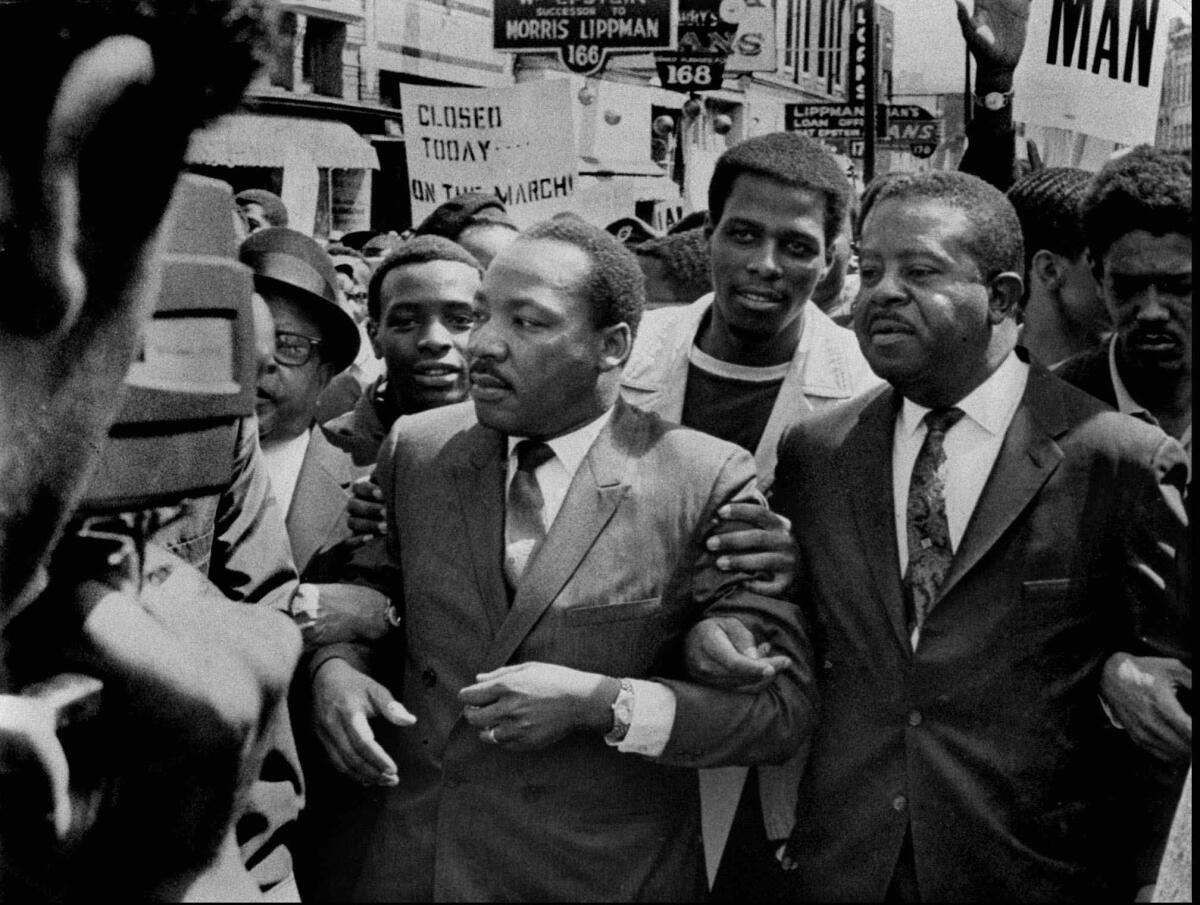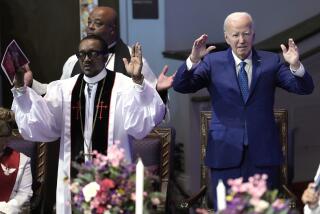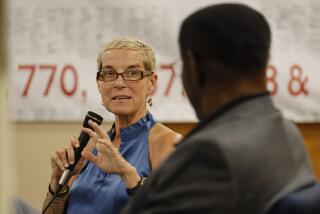Labor and the pulpit: A relationship with a long history

Pastors and students in Mississippi are putting pressure on Nissan to remain neutral as the United Automobile Workers try to organize a 5,600-worker plant near Jackson. They’re planning marches and protest events with the slogan “Workers’ Rights are Civil Rights.” Many say the campaign for better working conditions at the Nissan plant, described in a story in the Los Angeles Times, is a new kind of civil rights struggle.
Unions are increasingly turning to outside community groups to help organize workers, labor experts say, especially after the UAW lost a recent key vote at a Volkswagen plant in Tennessee. There, politicians and business leaders spoke out against the union.
But the Nissan campaign isn’t the first in which labor has worked with church groups, preachers and community leaders to organize workers. Here are a few others:
1968. Sanitation workers, Memphis, Tenn.
In 1968, after two sanitation workers were crushed to death in Memphis, about 1,300 black sanitation workers walked off the job. They were striking to protest discrimination and poor working conditions, and argued for joining the American Federation of State, County and Municipal Employees. As the strike continued, workers visited black churches to gain support; churches offered to help strikers with food for their families. The Rev. Martin Luther King Jr. traveled to Memphis in early April of that year to speak to the workers, giving his famous “I’ve Been to the Mountaintop” speech, and calling on listeners to boycott companies with discriminatory hiring practices. “Be concerned about your brother,” he said. “You may not be on strike. But either we go up together, or we go down together.” King was assassinated in Memphis the next day.
1996. Kmart workers, Greensboro, N.C.
A local union trying to get higher pay for 550 workers at a Kmart distribution center got a boost from a group called “The Pulpit Forum.” The group of African American ministers frequently spoke about conditions at the Kmart facility, and even made the front page of the local newspaper when several members were arrested protesting at a Kmart store. The pastors got local community members to sign a petition about working conditions at Kmart, and spoke about racial disparities in wages among Kmart workers. The union, UNITE, won a contract with wage increases in 1996.
2003. Yale clerical workers, New Haven, Conn.
Clerical positions at Yale University are mostly entry-level, and the clerical workers union has long had a contentious relationship with university management. There was a strike in 1984, and two walkouts in 1996. But in 2003, organizers staged one of the largest walkouts in school history, as clerical workers, custodians, secretaries and graduate students walked out and cheered to a speech by Rev. Jesse Jackson. One of the leaders of the Yale walkouts, who actually contacted Jackson to urge him to speak, was the Rev. Scott Marks, who marched with the workers. Other churches also became involved and served as gathering places for the union members, and places for them to voice their concerns about working conditions.
2008. Smithfield pork-processing plant, Tar Heel, N.C.
It took three votes over the course of more than a decade, but in 2008, workers at a slaughterhouse in North Carolina voted to join a union in 2008, a big win for labor in an area historically hostile to unions. The campaign to organize the Smithfield plant got national attention, as community groups from across the country called on the plant to remain neutral in an election so the workers could organize. The United Church of Christ distributed leaflets asking congregants to send letters to the chairman of Smithfield, boycott Smithfield products and ask other congregation members to sign a petition on behalf of the workers. Dozens of black churches also got involved in the issue of the plant, which was mainly African American. “I became involved with this not so much as a union issue, but as a civil and human rights issue,” Rev. Markel Hutchins, associate pastor at Philadelphia Baptist Church in Atlanta, told the New York Times. “What’s happening there is eerily reminiscent of the days of Jim Crow in terms of gross mistreatment.”
alana.semuels@latimes.com
Twitter: @AlanaSemuels
More to Read
Sign up for Essential California
The most important California stories and recommendations in your inbox every morning.
You may occasionally receive promotional content from the Los Angeles Times.











